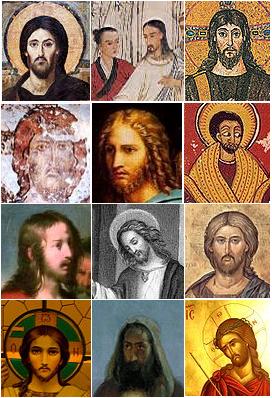
Netflix’s newly released Messiah is all about perspective. It invites us to come to terms with our limitations as humans in our quest to achieve a God’s eye view. The series fittingly chronicles the emergence of a complex Middle Eastern figure, whom many hail as the second coming of the Messiah. Others are not so convinced. So, what is he? A religious savior or a cultic charlatan, a political force for good or a terrorist revolutionary? The possibilities are as varied as our vantage points.
The series is shaped by the cinematographic genre developed in Kurosawa Akira’s classic film Rashomon, which provides the viewer several different interpretations of one deeply disturbing event. Rashomon signifies how complex human nature is, as well as how difficult the act of interpretation is in the quest for truth and justice. Similarly, Netflix’s Messiah keeps us guessing about who this figure really is and what’s his angle.
But what if his only angle is the one(s) we project onto him? At this point, the biblical literary critic in our midst might ask in Bultmannian terms: how did the one who preaches (i.e., Jesus) become the one who is preached? Again, with Bultmann in mind, is it even relevant that we find our way to the preacher’s intended angle (if that perspective is even attainable), or is all that really matters our own angle—what we make of him and why?
Those who created the series claim to have no theological ax to grind. But is that even possible, since the question of whether we can attain a neutral vantage point or God’s eye view is inherently theological or metaphysical, whether explicitly religious or secular. That being said, the series does assist us in coming to terms with our drive for certainty and desire to be in the driver’s seat so as to ask the interrogation questions.
Does “the truth” have “many different versions”? Is it “gray”? Can we live with this possibility, or must truth be black and white, when lives hang in the balance? This is a point of tension and division that emerges in the series, beginning with a CIA interview in the first episode. If truth is gray and not a matter of doctrinal certainty, what bearing does it have on personal-emotional, national, and international security?
Perhaps God’s Messiah lurks or abides deep down inside each one of us, but we’re unwilling to come to terms with the weight of our little worlds of total subjectivity. So we keep projecting onto others the messianic mantle, no matter the faith tradition or no faith at all. We look to our messianic icons to tell us what is real news and what is fake news since the search for truth, our own truth, becomes too bothersome, too much a burden to bear. If that’s the case, then perhaps the question Netflix would have us ask in response to Messiah really isn’t: “When the Son of Man returns” (whoever your tradition says he is), “will he find faith on the earth?” (Luke 18:8), but rather, will he find anyone willing to own their perspective for what it really is—their own?
In good Rashomon fashion, the series suggests that truth is not easy to find, if it is even attainable. But can we really handle the possibility that there is no inherent meaning, and that meaning is simply what we project? Would that reality be unbearable?
It is not really the nihilist for whom life “must be exhausting,” as the Dude suggests in The Big Lebowski, but the Nietzsches of this world who understand that if we truly control our own destinies, truth cannot ever be construed in merely pragmatic terms, since then nihilism, which Nietzsche painfully and courageously sought to avoid, is soon knocking at the door (See Edward Craig’s discussion on Nietzsche and William James in The Mind of God and the Works of Man).
In closing, the preceding reflections sum up my own observations in watching a few episodes of the series. Regardless of the presumed accuracy of my perspective, which after all, to quote the Dude again, is just my “opinion,” I recommend the series as a thought-provoking exercise in coming to terms with human subjectivity and its bearing on the pursuit of truth and justice.












